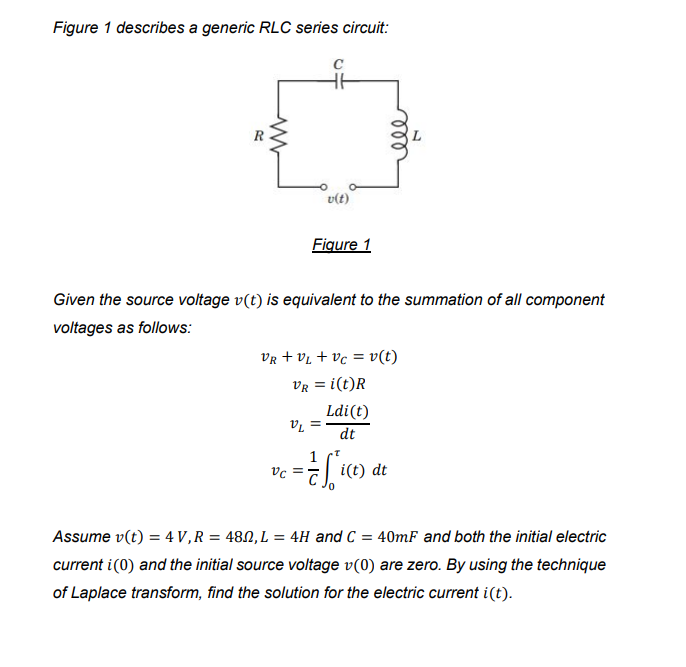Given the source voltage v(t) is equivalent to the summation of all component voltages as follows: Vr + vi + vc = v(t) Vr = i(t)R Ldi(t) v = dt 1 vc =7 i(t) dt Assume v(t) = 4 V,R = 482, L = 4H and C = 40mF and both the initial electric current i(0) and the initial source voltage v(0) are zero. By using the technique of Laplace transform, find the solution for the electric current i(t).
Given the source voltage v(t) is equivalent to the summation of all component voltages as follows: Vr + vi + vc = v(t) Vr = i(t)R Ldi(t) v = dt 1 vc =7 i(t) dt Assume v(t) = 4 V,R = 482, L = 4H and C = 40mF and both the initial electric current i(0) and the initial source voltage v(0) are zero. By using the technique of Laplace transform, find the solution for the electric current i(t).
Related questions
Question

Transcribed Image Text:Figure 1 describes a generic RLC series circuit:
v(t)
Figure 1
Given the source voltage v(t) is equivalent to the summation of all component
voltages as follows:
Vr + vL + vc = v(t)
VR = i(t)R
Ldi(t)
= la
dt
i(t) dt
Assume v(t) = 4 V,R = 480, L = 4H and C = 40mF and both the initial electric
current i(0) and the initial source voltage v(0) are zero. By using the technique
of Laplace transform, find the solution for the electric current i(t).
Expert Solution
This question has been solved!
Explore an expertly crafted, step-by-step solution for a thorough understanding of key concepts.
Step by step
Solved in 2 steps with 2 images
